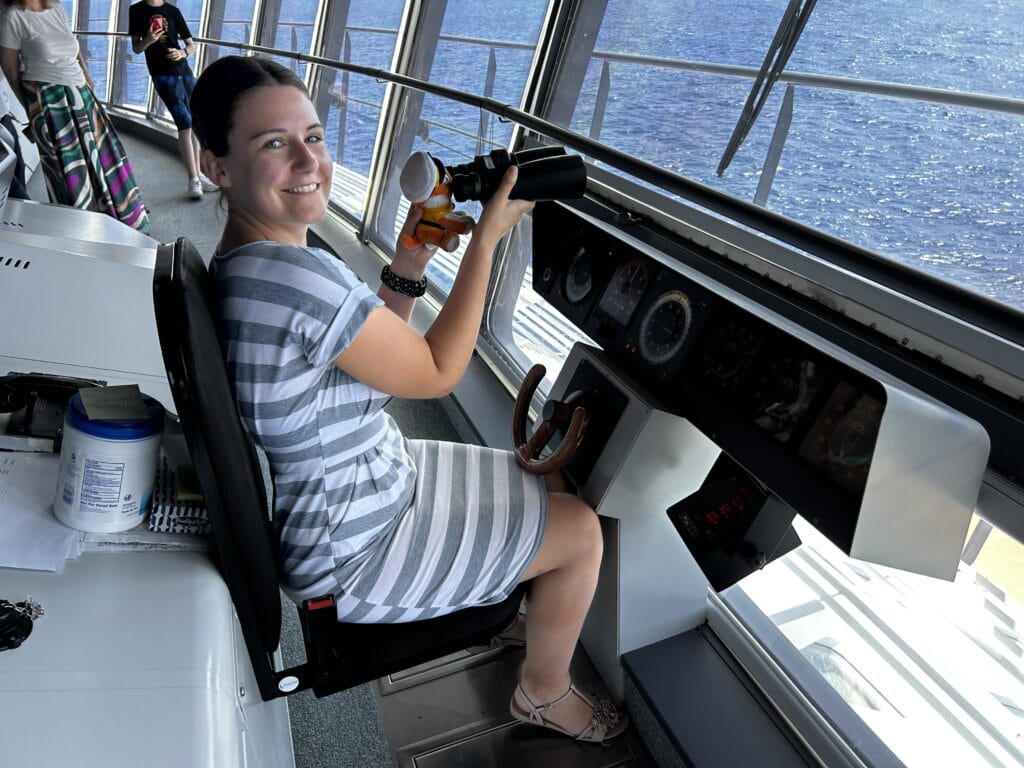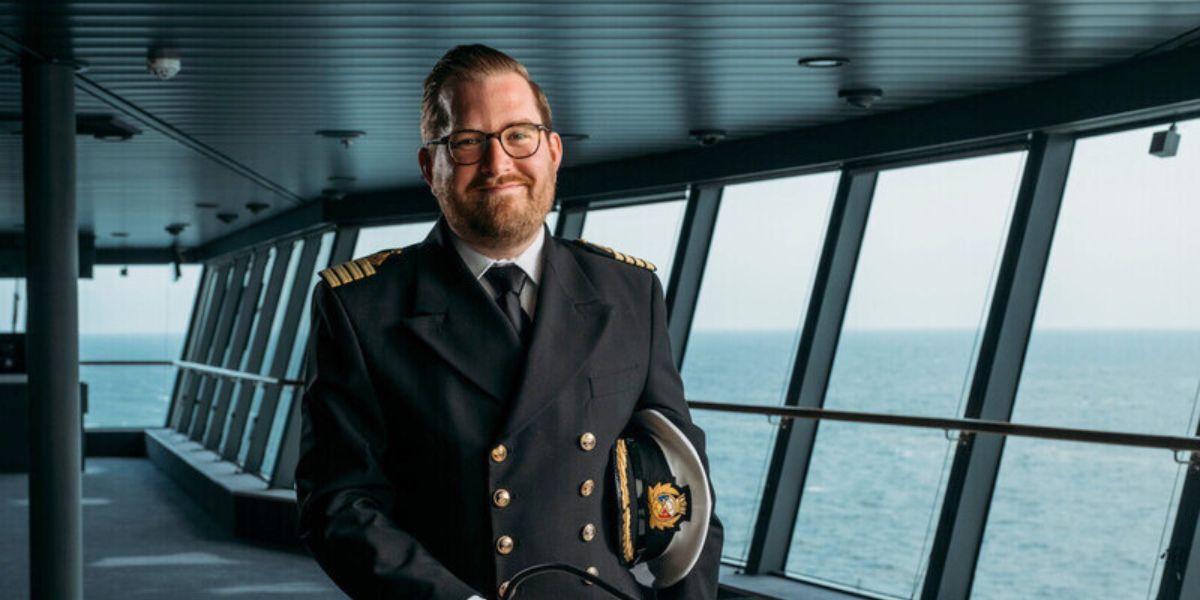Have you ever wondered how much a cruise captain makes? Cruise captains have a big job. They guide large ships across the sea. They are responsible for the safety of passengers and crew. In this article, we will talk about their salaries. We will also discuss the factors that affect their pay.
What is a Cruise Captain?
A cruise captain is the leader of a cruise ship. They make important decisions. They ensure everything runs smoothly. A cruise captain has many duties. They manage the crew. They plan the ship’s route. They also handle emergencies. It is a job with a lot of responsibility.
How Much Does a Cruise Captain Earn?
The salary of a cruise captain can vary. It depends on many factors. The size of the ship matters. The cruise line also plays a role. Experience is another important factor.
Average Salary
On average, a cruise captain makes between $80,000 and $150,000 a year. This is a wide range. It shows that many factors affect their pay.
Small Vs. Large Ships
Cruise captains on small ships may earn less. Their salary can be around $50,000 to $80,000 per year. Captains on large ships often earn more. Their salary can go up to $150,000 or more.
Cruise Line Differences
Different cruise lines pay different salaries. Luxury cruise lines often pay more. Budget cruise lines may pay less.
However, it’s not just about the type of cruise line. The size and success of the cruise company also play significant roles in determining a captain’s salary. Larger companies with vast resources are in a position to offer higher compensation. They aim to attract the best captains to ensure the smooth operation of their ships and the satisfaction of millions of passengers each year.
These companies understand that top-tier talent is crucial for maintaining high standards of safety and service. This is why they are willing to invest in competitive salaries, making sure they have the most qualified individuals at the helm of their ships.
In essence, while luxury cruise lines may offer higher pay, the overall size and financial success of a cruise company are influential factors in determining a captain’s salary. Some well-known cruise lines include:
- Carnival Cruise Line
- Royal Caribbean International
- Norwegian Cruise Line
- Disney Cruise Line
Why Prestige Matters in a Cruise Captain’s Salary
The prestige of a cruise ship plays a significant role in determining a captain’s salary. Simply put, the more esteemed the vessel, the higher the pay a captain can command. But why is this the case?
Reputation and Responsibility
Prestigious ships are not just well-known; they carry a reputation for luxury, safety, and exceptional service. Captains of these ships are entrusted with maintaining this high standard. The pressure and responsibility of safeguarding a high-value asset, along with the lives of passengers and crew, demand exceptional skill and experience, which translates to higher compensation.
Attracting Top Talent
A ship with a renowned status must attract not just vacationers but also top-tier professionals. Offering a competitive salary is crucial in securing the best talent. Experienced captains who can handle the demands of such vessels while enhancing their reputation are highly sought-after, justifying a more substantial paycheck.
Complex Operations
Prestigious ships often boast advanced technology and amenities that require a sophisticated understanding to manage effectively. Captains must oversee these complex operations seamlessly, ensuring everything runs smoothly. The intricate nature of these tasks justifies higher expectations for compensation.
Ultimately, the combination of increased responsibility, the need for top-notch talent, and the complexity of operations makes the prestige of a cruise ship a key factor in determining a captain’s salary.
Experience And Rank
When considering who tops the pay scale on a cruise ship, the captain is usually at the pinnacle. However, there are instances where this isn’t the case. A cruise ship’s hierarchy includes several key roles that can rival or even surpass a captain’s earnings.
Principal Senior Positions:
- Chief Engineer: Often commanding a salary that reflects both expertise and responsibility, especially if they possess extensive experience.
- Hotel Director: This role can also yield significant earnings, particularly on luxury cruises where high-level guest service is paramount.
- Cruise Ship Doctors: Medical professionals on board are highly valued, and their compensation often reflects this critical role.
Commission-Based Roles:
- Art Auctioneers: On luxury cruises, these individuals can earn substantial commissions from selling high-value artworks. In some cases, their earnings can even exceed those of the captain, depending on sales success.
While the captain’s salary is generally unmatched after accumulating years of experience, these other positions present strong contenders in the earning stakes, contributing to the intricate salary landscape aboard a cruise ship.
Experience is very important. New captains earn less. Captains with many years of experience earn more. Rank also matters. A senior captain will earn more than a junior captain.
When considering a cruise ship captain’s financial situation, the inclusion of room and board has a noteworthy impact on their expenses and savings potential.
Reduced Living Expenses
Since accommodations and meals are included as part of their employment package, captains often enjoy substantially reduced daily living expenses. This means they don’t have to worry about paying for rent, utilities, or groceries, which can lead to considerable savings each month.
Increased Savings Potential
For single captains without a family depending on them, this arrangement allows them to allocate a significant portion of their salary into savings or investments. Without the typical living costs that most land-based employees face, they can accumulate savings more rapidly.
Considerations for Married Captains
However, if a captain has a spouse and children living ashore, they might still need to contribute to household expenses back home. This could diminish the savings advantage slightly but still offers some relief compared to traditional living situations.
Overall, the coverage of room and board significantly lowers a captain’s necessary expenditures, allowing for more freedom in how they manage their finances and potentially leading to greater financial security.
Impact of Location and Nationality on Cruise Ship Captain Salaries
The location or nationality of a cruise ship captain can significantly impact their salary. Captains hailing from regions with a higher cost of living, such as Europe and North America, generally receive higher compensation. This is largely due to the economic factors influencing job markets in those areas.
While cruise lines actively seek crew members globally, offering competitive salaries to captains from affluent regions is essential due to the limited pool of qualified candidates. As a result, captains from places like the United States, Canada, or Europe often command premium paychecks.
In contrast, hiring crew members from locations with lower living costs allows cruise lines to manage salary expenses efficiently. Although these crew members are crucial to operations, captains with specific qualifications and experience are often worth the additional investment, particularly if they’re from regions demanding higher wages. This strategic approach ensures cruise lines maintain a skilled leadership team while optimizing labor costs.
Gender and Salary: Aboard Cruise Ships
Are there salary differences based on gender for cruise ship captains?
The topic of gender-based salary discrepancies is often a point of discussion across various professions, and the role of cruise ship captain is no exception.
Reports from individuals familiar with the maritime industry indicate that there can be differences in pay between male and female cruise ship captains. In certain circumstances, female captains may receive higher compensation. This disparity, when it occurs, is sometimes attributed to public relations strategies. Companies may perceive the promotion of female captains as a positive move for their brand image, especially considering the historically male-dominated nature of the industry.
However, these cases may not be universal. The reality can differ based on various factors such as the cruise line, the captain’s experience, and the specific route or type of cruise. The maritime industry’s evolving landscape also means that efforts towards equitable pay continue to develop, as organizations become more aware of the importance of diversity and fairness.
How to Become a Cruise Captain
Becoming a cruise captain is not easy. It takes time and effort. Here are the steps to follow:
1. Education
First, you need a high school diploma. Then, you should attend a maritime academy. This will give you the necessary training. Most aspiring captains undergo at least four years of university education before moving on to specialized maritime courses.
2. Gain Experience
Experience is key. You need to work on ships. Start with small jobs. Over time, you will move up the ranks. You will gain valuable experience. Typically, you’ll begin by qualifying to work as an officer and gradually climb the hierarchy by accumulating experience and taking additional qualifications.
3. Obtain Licenses
You need licenses to work on ships. Different countries have different requirements. Make sure you have the right licenses. These certifications are crucial to advancing your career and meeting international standards.
4. Continue Learning
Learning never stops. Keep taking courses. Stay updated with new technologies and regulations. This will help you advance in your career. Expect to invest 15-20 years before reaching the rank of a cruise ship captain, often starting at the lower end of the pay scale. This long-term commitment underscores the need for continuous education and adaptation to new maritime advancements.

Benefits of Being a Cruise Captain
Being a cruise captain comes with many benefits. Here are some of them:
1. Travel The World
Cruise captains travel to many places. They see different countries and cultures. This is a great perk of the job.
2. Good Salary
Cruise captains earn a good salary. This allows them to live a comfortable life.
3. Job Security
Cruise captains have job security. The cruise industry is growing. There will always be a need for experienced captains.
4. Leadership Role
Cruise captains are leaders. They have many responsibilities. This can be very rewarding.
5. Quality Accommodations
Captains enjoy high-quality living quarters near the bridge. These accommodations are more luxurious than typical crew dorms, featuring multiple rooms, big-screen TVs, and a kitchen area.
6. Family Visits
Captains can have family members visit the ship without extra cost. While their schedules are demanding, these visits allow captains to stay connected with loved ones even while at sea.
7. Dining Privileges
In addition to included meals, captains can choose from restaurant menus and even dine in passenger areas, offering a wider variety of culinary experiences.
8. Housekeeping and Laundry Services
Captains benefit from housekeeping and laundry services, freeing them from daily chores and allowing them to focus on their duties.
Challenges of Being a Cruise Captain
Being a cruise captain is not easy. There are many challenges. Here are some of them:
1. Long Hours
Cruise captains work long hours. They are on duty for many days. This can be tiring.
Typically, a cruise captain is expected to work about 12 to 16 hours each day. This demanding schedule stretches over a period of 10 to 12 weeks. During this time, captains do not have any days off, working continuously to ensure the smooth operation of the ship.
Despite the grueling hours, they are always on call. If an emergency arises, the captain must be ready to respond immediately, even if it means being woken up in the middle of the night.
After completing their extended stint onboard, captains generally rotate off the ship for a break of similar duration, ensuring they get the rest needed to maintain their performance and well-being. This rotation system is crucial, as it would be impossible to sustain such long hours year-round.
2. Away From Home
Captains spend a lot of time away from home. They miss their families. This can be hard.
3. High Responsibility
Captains have a lot of responsibility. They must ensure the safety of everyone on board. This can be stressful.
Frequently Asked Questions
How Much Does A Cruise Captain Make Yearly?
A cruise captain typically makes between $70,000 and $150,000 per year.
What Factors Influence A Cruise Captain’s Salary?
Experience, cruise line, ship size, and route all influence a cruise captain’s salary.
Is There A Difference In Salary Between Cruise Lines?
Yes, cruise lines offer different salaries based on their size and reputation.
Do Cruise Captains Get Bonuses?
Yes, many cruise captains receive performance-based bonuses and benefits.

Summary Table
| Factor | Salary Range |
|---|---|
| Small Ships | $50,000 – $80,000 |
| Large Ships | $80,000 – $150,000 |
| Luxury Cruise Lines | $100,000 – $150,000 |
| Budget Cruise Lines | $50,000 – $100,000 |
Conclusion
Being a cruise captain is a rewarding job. It comes with many benefits. However, it also has its challenges. The salary of a cruise captain can vary. It depends on many factors. These include the size of the ship, the cruise line, and experience. If you want to become a cruise captain, you need to work hard. You need the right education and experience. With time and effort, you can achieve your goal.

